- Featured
- Clean air
- Climate justice
- Consumer Rights
- Corporate Accountability
- Data access
- Early Childhood Development
- Economic fairness
- Education
- Electoral fairness
- Environmental justice
- Food justice
- Gender based violence
- Grants/social assistance
- Health
- Housing and infrastructure
- Industry interference
- Land Justice
- LGBTQIA+ rights
- Media/ information access
- Public transport
- Racism
- Reparations
- Safety
- Sanitation
- Service Delivery
- Sexual and Reproductive Rights
- Social justice
- Unemployment
- Womxn's rights/ gender equality
- Workers' rights
- More
-
Barricade Power Park Dam and the Abandoned Buildings for Safety in Orlando EastOn Sep 1, 2024 the search for a missing boy in Orlando East, Soweto ended after two days when his body was found in an old abandoned power station. Reports by Daily Sun and SABC News say the boy was playing with friends when he fell in [2]. The Municipality has a clear responsibility to minimise the dangers faced by its residents. Abandoned buildings should not be so easily accessible. The Municipality must lock these spaces and cover water bodies in the area. We have seen countless cases over the years of people’s lifeless bodies being pulled from streams, rivers, dams and other abandoned or open areas like irrigation canals. Many of these locations are either state-owned property, or the Municipality should make it their priority to safeguard residents where private land-owners refuse or remain negligent. South Africa has a great amount of public facilities that remain either inaccessible, or badly maintained where with enough effort, every South African can be taught how to swim. In the meantime, to keep people safe there needs to be another safety structure put in place. The Municipality can not continue to foster a culture that neglects the safety of its residents. They must ensure that every space in Power Park that poses a danger is immediately addressed. The cost of the Municipality of Johannesburg’s negligence is the loss of life. The site of this tragedy is an old power station located in a popular tourist area. Visitors enjoy the beauty of our country, but this privilege does not extend to local families. While wealthier children play freely, those from low-income homes live in constant worry about their safety. This luxury does not extend to the people whose homes appear in the back of these tourists' photos. Their peers from more affluent backgrounds get to run and play freely, children from low income homes and their families are always concerned about where, if not in their homes, people are safe. Families in these communities are under immense stress to provide for their children while facing challenges like dilapidated buildings and exposed wires. This situation limits children’s opportunities to experience the joys of growing up in South Africa, a country filled with potential. There are fewer and fewer spaces for children to have clean, safe fun, the youth are watching their friends fall to their deaths seeking entertainment. September usually marks the beginning of Springtime and fun in the sun for kids across South Africa. As the new season approaches, children should look forward to playing outside. It is unacceptable that parents cannot allow their kids to enjoy simple freedoms because of the municipality's negligence regarding safety measures, such as barricading and covering hazardous areas like the Power Park Dam. It is unacceptable for figures such as the spokesperson for EMS to place the sole responsibility of ensuring the safety of the city’s residents on their guardians and loved ones [1]. The Municipality has the duty to minimise the role they play in endangering the people by neglecting to close off dangerous buildings. It is also their responsibility to ensure that private property owners are held to the same standard. Lock up the death duplexes, cover the water. The lives of residents in Soweto are worth investing in. References 1. SABC News. Monique Lewis. 2 September 2024. EMS calls for parental supervision following drowning in Orlando https://www.sabcnews.com/sabcnews/ems-calls-for-parental-supervision-following-drowning-in-orlando/ 2. Daily Sun. Nhlanhla Khomola. 3 September 2024. Boy drowns in abandoned power station! https://www.snl24.com/dailysun/news/tragic-scene-as-soweto-boy-13-drowns-in-dam-20240903 3. The Citizen. Jarryd Westerdale. 18 October 2024. No swimming allowed: Warning after 13-year-old drowns in irrigation canal https://www.citizen.co.za/news/south-africa/drowning-13-irrigation-canal-warning-dws/ 4. Envirolutions Consulting. March 2020. BASIC ASSESSMENT PROCESS AND WATER USE LICENCE FOR THE PROPOSED REHABILITATION OF ORLANDO POWER STATION DAM, KLIPSPRUIT, CITY OF JOHANNESBURG, GAUTENG PROVINCE. DRAFT BASIC ASSESSMENT REPORT.25 of 100 SignaturesCreated by Tshegofatso Matsha
-
Investigate Bizana Police Station for corruptionIt is deeply disturbing to live in a community where we feel unsafe and not protected by our own police force. We want Bizana to be free from the high levels of crime and drug infiltration. Last year the community of Mbizana took to the streets, protesting against the high crime rate in the area. The community has been fed up with the high number of murders, rape cases, kidnappings, and drugs [5]. In a recent incident, a 38-year-old magistrate Buliswa Phatho was shot and killed last week, and her husband and two kids were seriously injured. Meanwhile, a Grade 12 Bizana village High School learner, Ntlakanipho Rafana was kidnapped, killed and dumped in a nearby forest. Civil organizations want the police and justice system to intensify their fight against the increasing crime rate in Mbizana. The protest was covered nationally here: https://youtu.be/6tV9unyOUFA?si=JwVDJ84BzN7AQ47f&t=8 References [1] 2 Shootings in KZN, 1 in Eastern Cape, cop among 4 killed. Caxton News. July 15 2024. https://www.citizen.co.za/network-news/lnn/article/2-shootings-in-kzn-1-in-eastern-cape-cop-among-4-killed/ [2] Mbizana Police Officers Nabbed for Corruption and Extortion, by Babalwa Ndlanya for Mthathat Express. 01 December 2023. https://www.news24.com/news24/community-newspaper/mthathaexpress/mbizana-police-officers-nabbed-for-corruption-and-extortion-20221201 [3] Release of Eastern Cape Crime Statistics. By SAPS 09 October 2023. https://www.saps.gov.za/newsroom/msspeechdetail.php?nid=48315 [4] Pensioner raped and body parts removed in horror. By Max Mxabo and Estelle Ellis for Daily Maverick. 30 March 2023. https://www.dailymaverick.co.za/article/2023-03-30-pensioner-raped-and-body-parts-removed-in-horror-murder/ [5] Community of Mbizana protests the high crime rate in the area. SABC News. https://youtu.be/6tV9unyOUFA?si=JwVDJ84BzN7AQ47f&t=869 of 100 Signatures
-
Mayor finish building the Nogqala bridge in NgcoboWe have been promised the bridge for the past 20 years, but not having the bridge is affecting us as residents, children are unable to get to school when it rains they are forced to only return to school in May after the rainy season, which impacts their schooling. High school learners are even forced to rent places closer to the school just so they are able to attend classes [2] We can’t go to the clinic to get treatment, we can't go to town. It's worse when someone passes on, we are forced to carry the coffin for a very long distance because we can't cross that river it's too dangerous. The river has claimed many lives and the delays by the municipality continue to threaten us as the community of Noqgala [3], if you add your name to this petition you can help us get the municipality to hear our cries we are tired of being ignored, 20 years is a long time and we need clear plans and a timeline of when will the bridge be completed. References [1] https://groundup.org.za/article/r97-million-spent-and-three-years-later-still-no-bridge/ [2] https://www.dispatchlive.co.za/news/2023-06-19-r10m-and-two-years-but-villagers-still-without-bridge/#google_vignette [3] https://youtu.be/XoMGTfRhokU68 of 100 SignaturesCreated by Thabisile Miya

-
Make SA schools safe spaces for children and learningAs learners return to class, RISE Mzansi calls on President Cyril Ramaphosa to prioritise, among other issues, School Safety during this year’s State of Nation Address (SONA). In 2015, the National Schools Safety Framework was launched to guide the Department of Basic Education, schools, districts and provinces to ensure a common understanding of the extent of school violence and provide evidence on how to mitigate it. The plan to work with SAPS and the Department of Social Development (DSD) to protect learners and combat social ills, has had little effect as South Africans see a rise in violence at schools and teenage pregnancies which saw an increase from 90 000 in 2022 to 150 000 in 2023 [1]. From January to September 2023, there were 27 murders, 59 attempted murders, 707 assaults and shockingly 229 rapes [2] on at educational facilities, contributing to the rise in pregnancies and dropout rate for adolescent girls. If you sign this petition you are helping us get a step closer to ensuring that schools are a safe learning environment for parents and teachers. References [1] SAPS, 2023. Crime statistics. https://www.saps.gov.za/services/crimestats.php [2] SABC News, 2023. Adolescent/ Teenage Pregancy in South Africa. https://www.sabcnews.com/sabcnews/infographic-adolescent-teenage-pregnancy-crisis-in-south-africa/#:~:text=Current%20statistics%20on%20adolescent%2Fteenage,the%202022%2F2023%20financial%20year.10 of 100 SignaturesCreated by Gaopalelwe Phalaetsile
-
Say no to beer sales in food shops!South Africa rates 5th in the world in the amount of alcohol consumption among drinkers [1]. In addition, alcohol use plays a role in about half of all non-natural deaths [2]. Despite this, the alcohol industry continues to be bold and aggressive in its quest to increase the availability of alcoholic products and make more profits. The Beer Association of South Africa (BASA) in October started calling for beer to be sold at food shops [3]. This is in direct contravention of the National Liquor Act (2003), which prohibits the sale of alcohol other than natural wine at grocery stores and supermarkets. The association must be swiftly stopped in its tracks to protect South Africans from more alcohol harm. According to global trends, the government is supposed to be decreasing access to alcohol by limiting availability in the interest of public health. South Africa already has a disproportionate number of outlets for the population. Those who are supporting the move to allow beers into our food shops are supporting increased harm. If beer is made available in food shops, it will increase easy access and potentially come with discounts and special offers. Some will argue that individuals have the right to choose and take responsibility for their own health, but we know it is not that simple. Individual choice is influenced by the environment in which consumers find themselves. Beers on the shelves of our food shops will increase availability and send a message that beer is just another normal product, like milk, bread, and chocolates. But alcohol is not an ordinary commodity. Currently, South Africans who drink have an unhealthy relationship with alcohol. Statistics show that about one-third of people in South Africa aged 15 and above drink [4]. However, of those who drink, two-thirds drink to the point of intoxication (i.e., binge drinking), causing harm to themselves and others. This practice also diverts government resources away from development priorities like managing alcohol-related harm through policing, trauma admissions, social and disability grants and more. Our Health Minister has already issued a public plea for South Africans to reduce their ‘drinking sprees’ because of the excessive burden alcohol-related cases place on the healthcare system [5]. Already, the Health Ministry will have less budget available to it from next year because of budget cuts – it cannot afford to waste even more of its limited budget on a further increase in alcohol harm-related cases. COVID showed us that less alcohol availability means less trauma and fewer hospital admissions. It means a safer society for our people. This call by the liquor industry is irresponsible, showing a disregard for the health and welfare of the public and for the government purse. We call on everyone in Mzansi to support our call for #NoBeersInSAFoodshops. By signing this petition, you are joining us in saying we do not need beer in our food shops, there are enough places to buy beer. #NoBeerSalesInSAFoodshops #HandsOffLiquorAct #AlcoholSaferSA References: [1] https://www.who.int/publications-detail-redirect/9789241565639 [2] Parry South Africa: alcohol today. Addiction. 2005;100(4):426–9. [3] https://www.iol.co.za/weekend-argus/news/beer-association-wants-beer-to-be-sold-in-supermarkets-347d921a-068b-4697-85b8-00b521a3b1fc#:~:text=Cape%20Town%20%2D%20With%20more%20than,at%20grocery%20stores%20and%20supermarkets. [4] https://substanceabusepolicy.biomedcentral.com/articles/10.1186/s13011-018-0182-1 [5] https://www.news24.com/news24/southafrica/news/drinking-sprees-bird-flu-and-cost-cutting-health-minister-joe-phaahla-worried-over-public-healthcare-20231012.153 of 200 SignaturesCreated by SAAPA
-
Stop closed door meetings between government and big businesshttps://youtu.be/nuVHJT_rhgI Imagine your teacher smoking in the classroom. For some of us, this was the reality until new rules were put in place by government in 1993 [6]. But why had government not acted sooner? In their paper published in 2003, Mia Malan and Rosemary Leaver outline the relationship between the biggest tobacco business and government [7] [8]. Government eventually put public health before profits, thanks to the work of health advocates. But big businesses are still using their power to protect their profits at our expense. Researchers have pointed out that big businesses have worked to delay and delegitimize important health policies by using their associations and different strategies [9]. Researchers and civil society groups are not allowed to attend a standing meeting between the National Department of Health and big food businesses [9]. State capture has shown us we have a lot of work to do. But we are making some progress in improving transparency and accountability. Politicians have to declare financial interests [10], and political parties now must disclose who funds them [11]. We need to keep building on this momentum. We can't afford to have a repeat of 2014 where big businesses that make food like polony did not agree with government's proposed hygiene rules and instead wanted to self-regulate [12] [13]. Government should have stood up to those big businesses in 2014 and put the new rules in place anyway. Government has to stand up to big business bullies. Their job is to serve the people, not private interests. References can be found here: https://amandla.mobi/big-business-bullies-references8,399 of 9,000 SignaturesCreated by amandla mobi member

-
WE DEMAND THE CITY OF CAPE TOWN WITHDRAW THE UNCONSTITUTIONAL UNLAWFUL OCCUPATION BY-LAWThe unlawful occupation by-law, gazetted on the 14th of February 2022 undermines the constitution and circumvents the PIE ACT. This by-law deviates from the Human Settlements Strategy which provides that the City should “proactively plan for informality.” The Unlawful Occupation By-law contradicts this aim, it seeks to criminalise poor and working-class people who have fallen through the cracks of the city’s housing waiting list. The City’s by-law on unlawful land occupation seeks to bypass the protections of PIE. It also provides the so-called “City officials” with large amounts of arbitrary and discretionary power over poor and working-class people.270 of 300 SignaturesCreated by Aphiwe Ngalo
-
Minister Motshekga, keep South African schools as alcohol-free zones!!This is an issue that affects everyone in our society - learners, educators, school admin staff, and anyone who has, or will have, a child in the school system. There is a saying that 'it takes a village to raise a child'. Well, it takes a caring society to protect its children from exposure to the risk of harm. Alcohol use is already a major problem in our country. Schools in some communities already face the challenge of having large numbers of liquor outlets around them and very close to them. Some already have problems with alcohol being used on their premises. Making it possible for schools to have liquor for the purpose of fund-raising simply increases the risks for all of those at schools - learners, educators, admin staff, and even family members who interact with the school. If schools have a problem raising funds, government and society must work with them to address it in other ways - allowing schools to raise money through liquor is not the answer. We should be better than that as a society, as South Africans. We call on you to join us in urging the government to scrap the sections in the BELA Bill which will allow liquor on school premises and at school events. Support the call for a complete ban on liquor on school premises (except for personal use by staff who live on school property). Demand better funding models for our schools so that all children have access to quality education in a safe and protected environment. Fly a blue ribbon at your school in support of the campaign; wear blue ribbons as a group as you participate in school activities. Write to the Minister at [email protected] to tell her what you think of the alcohol clauses in the BELA Bill. Write to the Portfolio Committee in Parliament by 15 June to register your opposition to the alcohol clauses in the Bill - Mr Llewellyn Brown, the Committee Secretary via email: [email protected] or online at https://forms.gle/MoC6AdbdQyYPk3Y49 or via WhatsApp: +27 60 550 9848. Mr Llewellyn Brown can be reached on 083 709 8450 for enquiries. Download the BELA Bill from https://www.parliament.gov.za/storage/app/media/Bills/2022/B2_2022_Basic_Education_Laws_Amendment_Bill/B2_2022_Basic_Education_Laws_Amendment_Bill.pdf Together we can win this one!6,192 of 7,000 SignaturesCreated by Southern African Alcohol Policy Alliance in SA (SAAPA SA)

-
Say No to Nuclear Energy plans by 5th FebruaryNuclear power is dangerous, unhealthy and costly. We should instead move toward a just energy transition, investing in and supporting renewable energy (RE) sources. Not only is RE able to create a more inclusive energy landscape – giving formerly-excluded communities more of a chance to be part of the economy – the risks associated with RE are significantly less. Nuclear plants – big or small – are very expensive to set up, often with cost overruns and construction delays. There are a number of reasons to create a groundswell of opposition against nuclear for South Africa’s energy mix. 1. As history has taught us, new nuclear procurement is where large scale corruption can, and has, taken place. In this instance, little to no information has been provided to the public on the cost and feasibility of new nuclear energy. Transparency is needed to build back public trust after past illegal and unconstitutional nuclear deals. 2. Nuclear power is not needed for our energy grid now or in the future. Especially during the covid crisis, we should not be looking at procurement of one of the most expensive forms of energy, but rather investment in more critical areas of need such as vaccines, education and employment. 3. The most recent Energy plan, IRP 2019, does not show necessity for the procurement of nuclear energy. Also no-one can guarantee 100% safety with nuclear energy. Radiation and radioactive waste created at nuclear power stations are extremely toxic. More nuclear power could put the health of workers – most-likely younger people – and communities at risk. Consider for a moment what Electrical Engineer Hilton Trollip points out, “We absolutely do not need Koeberg to avoid load shedding. There are documented and proven sustainable electric systems that can run very well without nuclear and even without coal.” Why then, is our government not more serious or committed to the #JustEnergyTransition? Nuclear is not the long-term solution South Africa needs to resolve the energy crisis, and it certainly will do much less for the economy than renewable energy. References https://ewn.co.za/2017/04/26/western-cape-high-court-rules-sa-nuclear-deal-unlawful-and-unconstitutional https://theconversation.com/why-decommissioning-south-africas-koeberg-nuclear-plant-wont-be-easy-89888#:~:text=The%20potential%20cost%20of%20decommissioning,UK%20model%20at%20R76%20billion https://www.iol.co.za/news/south-africa/western-cape/safety-concerns-over-koeberg-nuclear-plant-as-cape-town-tremors-grow-in-intensity-74d7b088-2840-41ee-a8a7-a40fa83451ee1,231 of 2,000 SignaturesCreated by SAFCEI

-
Stop your alcohol ban court challenges and unite behind government's COVID-19 effortPut people before profit South Africans have emerged from the second wave of COVID-19 infections and deaths which started in November 2020 and drew to a close towards the end of January. One of the steps taken to reduce the spread of the virus and to limit unnecessary demand on hospital facilities was to suspend the transportation and sale of alcohol. This, together with other measures, helped to stem the virus, so much so that the infection and death rates are down and the suspension of access to alcohol has been limited. Health workers are exhausted. They are working hard and long hours to treat COVID-19 patients. They themselves are being infected by the virus, with some even losing their lives. They need our support. The temporary ban on the sale of alcohol offered them vital protection. South African Breweries (SAB), Vinpro (representing winemakers) and others have responded by going to court to challenge government’s right to suspend the transportation and sale of alcohol, even though the evidence shows that such suspensions, together with other measures like night-time curfews, have helped to stop the spread of the virus, to keep people in South Africa safe from alcohol-related harm, and to allow hospital workers to focus on COVID-19 cases. Although we support the right to protest and to use the courts to ensure rights are protected, we do not think these court cases are the solution to addressing our collective challenge in dealing with the pandemic. Since 2016, the South African government has had an updated National Liquor Policy and a draft Liquor Amendment Bill which contain new provisions for regulating the distribution and sale of alcohol. The Policy and the Bill are based on the World Health Organisation (WHO) Global strategy to reduce the harmful use of alcohol . The COVID-19 pandemic has shown that the harmful use of alcohol contributes disproportionately to the number of trauma admissions in hospitals across South Africa, especially over weekends. We are therefore in urgent need of permanent new measures to regulate alcohol in order to save lives, money and jobs. Only 31% of people in South Africa aged 15 and above actually drink alcohol. But, when they do, the majority of them drink heavily and in a way that is harmful to themselves and others. The alcohol industry depends on this binge-drinking to make their substantial profits, hence their resistance to the current ban and to alcohol regulation in general. OUR CALL TO INDIVIDUALS AND ORGANISATIONS IN CIVIL SOCIETY, AS WELL AS PUBLIC HEALTH WORKERS AND RESEARCHERS ** Help us send a message to SA Breweries, Vinpro and others, calling on them to drop their court actions because “our lives are more important than their profits”. ** Join us in assuring government that we all support their efforts to manage alcohol in the interests of protecting us from harm during the pandemic. ** Add your voice to the call for the urgent passing of the Liquor Amendment Bill as a major step forward in the ongoing struggle for a healthy and safe South Africa. The immediate adoption of the Bill will help to bring alcohol-related harm levels down by promoting safer drinking practices; it will also reduce the need for emergency alcohol sale suspensions now and in the future. THIS PETITION IS SUPPORTED BY SAAPA SA ALLIANCE PARTNERS, INCLUDING: Cancer Association of South Africa; Children's Institute; Gateway Health Institute; Gun Free South Africa; Hlanganisa Institute for Development in Southern Africa; Observatory Ratepayers Association; People's Health Movement; Smoking and Alcohol Harms Alleviation and Rehabilitation Association; South Africans Against Drinking and Driving; Teddy Bear Foundation for Abused Children; Yeoville Bellevue Ratepayers Association1,013 of 2,000 SignaturesCreated by Southern African Alcohol Policy Alliance in SA (SAAPA SA)

-
Justice for the brutal murders of Makoena Mabusela and Tebogo Mphuti #justice4maksandtedGender-based violence has become rampant in South Africa. Women and children are brutally murdered daily. We cannot continue to go on like everything is normal. IT IS TIME TO TAKE A STAND AGAINST GBV. The government and private sector have to come together and remove the systemic barriers to gender equality and advocate for behavioural change in order to turn the tide that has made violence against women and children a societal norm. The two women who were brutally murdered had families and children. They were part of a community who were highly dependant on them. We need to build a justice system that women and children will feel confident in. We need a legal framework that will stand firmly against GBV and be in full support of women and children. The deaths of all these extraordinary women will not be in vain.11,110 of 15,000 SignaturesCreated by Thato Monanyane
-
Tell Netcare, Life Healthcare Group and Mediclinic to protect healthcare workers and save livesFrom 2016 to 2019, Netcare, Life Group, and Mediclinic paid out more to shareholders than they made in profits. They paid out R 19 billion in payouts to shareholders (dividends and share buybacks) in the same period they only made R11 billion in profits. This means that even when these companies were making losses, the shareholders continued to gain millions in wealth. Over the years the pay-outs to shareholders have come at the cost of better healthcare outcomes and better working conditions for healthcare workers. These companies need to step up and show they care about more than shareholder profits. In this time of crisis, we must prioritise the health and wellbeing of all South Africans not just those who are wealthy. Tell Netcare, Mediclinic, and Life that they need to stop shareholder payouts (dividends and share buybacks) till 2022 to ensure that all available resources are prioritized for free regular testing for all healthcare workers, and free medical attention for healthcare workers who contract Covid-19 and adequate (PPEs) for all healthcare workers working in South Africa in public and private facilities. This petition is co-signed by: Young Nurses Indaba Trade Union(YNITU); Oxfam SA; Public Services International (PSI); National Union of Care Workers of South Africa (NUCWOSA); Treatment Action Campaign (TAC); South African Federation of Trade Unions (SAFTU), and Amandla.mobi. Reference: A survey was conducted by Oxfam South Africa. Oxfam South Africa surveyed 166 healthcare workers for a month during the period of the 27 July 2020 to 27 August 2020 using two trade union’s databases: The Young Nurses Indaba Trade Union (YNITU) and National Union of Community Healthcare Workers of South Africa (NUCWOSA). The survey was sent via Whatsapp messages directly to the healthcare workers on the database. The survey was sent to healthcare workers in Gauteng, Western Cape, and the Eastern Cape. The survey respondents were mostly nurses (90%), permanent workers (88 %), 86 % in the public sector, and 10 percent in the private sector. A note on the low response rate from private-sector employees is that some respondents that they and their colleagues feared intimidation for participating in the survey. Figures from Department of Health South Africa 13 August 2020 and correct as of 21 August 2020. https://bhekisisa.org/resources/2020-08-14-health-workers-make-up-one-in-20-of-covid-19-cases-in-south-africa-new-data-shows/ Oxfam South Africa. (2020). The Right to Dignified Care Work is a Right to Dignified Health Care For All. https://www.oxfam.org.za/wp-content/uploads/2020/07/Oxfam_Care4Carers-Report_Final_20200701.pdf431 of 1,000 SignaturesCreated by Oxfam South Africa

.png)
.png)
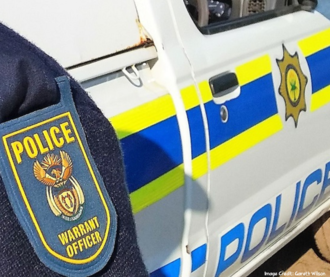.png)
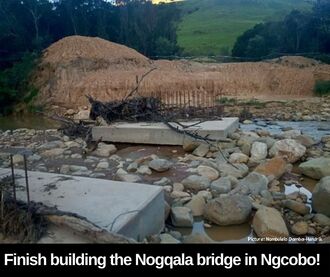.jpg)
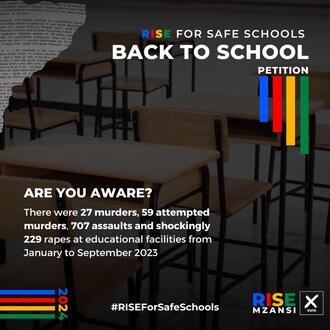
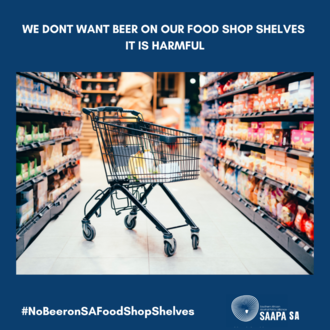

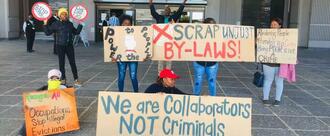
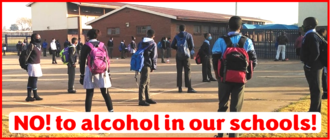
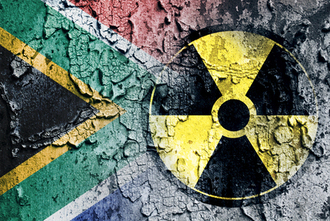


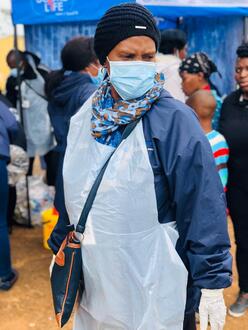.jpeg)